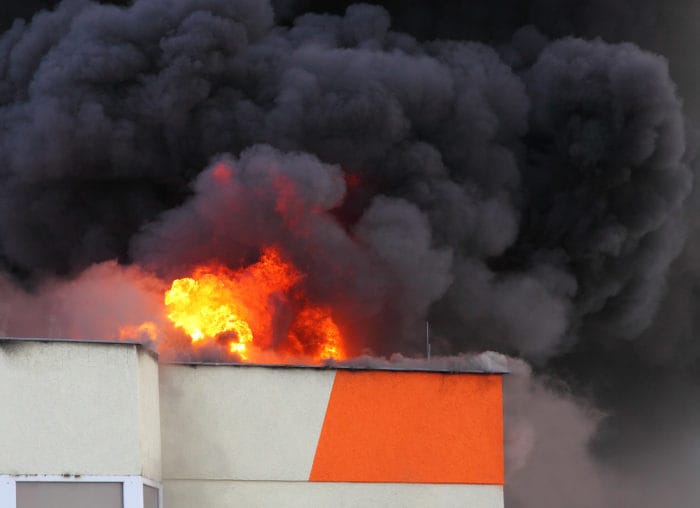You’ll sometimes hear of a gas explosion in the news, and on TV it looks frightening. Some gas explosions are certainly dangerous, causing large amounts of property damage, injury, and even death. Whether you’re a homeowner or a business owner, you need to be aware of the dangers of gas explosions, and how they affect you.
Here’s everything you need to know about gas explosions, and how to prevent them.
How Common are Gas Explosions?
How wary should you be about gas explosions? You should be aware of how dangerous gas is, as it’s something that’s used in almost every building. Natural gas is used for heating homes, heating water, and cooking appliances such as stoves. With this in mind, you need to understand the dangers that are present.
If you’re using newer appliances, such as a newer HVAC system, then there’s going to be less risk of a gas explosion happening in your home or business. Older appliances though won’t have the same safety features, and so they cause more of a risk.
The NFPA reports that an average of 4,200 fires a year are started by the ignition of natural gas. These fires cause an average of 42 deaths and 140 injuries. Over half of those fires are started by cooking appliances, so you can see how important it is to maintain any cooking equipment in the building.
With this in mind, you’ll need to be aware of how a gas explosion will come about.
What Causes Gas Explosions?
If there’s a gas leak somewhere in the building, there’s a chance that the gas can be ignited and cause a fire. There are several common causes of these leaks and fires that you need to be looking out for.
Incorrect installation: If a gas using appliance, such as a furnace or stove, has been improperly installed, it’s at risk of leaking gas. This can lead to a fire if not caught quickly.
Improper use: All gas appliances need to be used according to the instructions given. If they’re used improperly, this will again cause gas leaks.
Damaged gas lines: If a gas line isn’t properly maintained, it can start leaking gas. This often happens when they start developing rust and other issues.
Defective equipment: If a gas operated appliance develops a defect, it’s at risk of leaking gas.
Faulty gas tanks in vehicles: The risk of gas leaks won’t be restricted to the building, either. If there’s a fault in the gas tank of a vehicle, that can lead to a gas explosion.
How Can You Prevent Gas Explosions?
This is all very worrying, but how do you ensure that you won’t be the victim of a gas explosion yourself? There are steps you can take to lessen the risk to your building and the people who live in it or use it every day.
Here’s what you can do.
Call in fire prevention experts: This is the most important thing you can do when it comes to preventing gas explosions. As a layperson, you can identify some risks, but there will always be something you’ll miss. If you hire experts to come and inspect your property, they know where to look when it comes to gas leaks.
With a good fire prevention company on your side, you’ll be able to avoid most gas leaks before they even happen. They know what to inspect, and can show you how to correct most issues before they become dangerous.
Know where the gas mains is located: It’s important that you know where the gas meter is located in your building. If you ever smell gas, you should be able to go out to it and shut the mains off, cutting the supply of gas. That’s going to prevent a fire most of the time, as there will be no gas that can be ignited.
If you don’t know where the mains is, take time to go and find it now. That will help you quickly turn the gas off if you ever need to.
Have all gas items inspected regularly: If you hire a fire prevention service, they will help you prevent gas explosions by having your gas items inspected. It’s usually best to inspect them yearly, so you won’t have to worry about them becoming outdated, or developing issues without your knowledge.
Open the windows: If you smell gas and you have time, you can help ventilate the building by opening as many windows and doors as possible. This helps air the gas out, so it can’t build up and cause an explosion.
Take action if you smell gas: You already know that gas has a smell akin to rotten eggs, so you’ll know if it’s around. This isn’t actually naturally occurring but instead is added to the gas. Natural gas is actually odorless, so the smell is added to make it instantly noticeable.
If you ever smell gas in the building, then you should evacuate right away. It’s likely that it won’t ignite, but gas will still have many harmful effects if you are exposed to it for too long. You may experience light-headedness, dizziness, nausea, and headaches if there’s a leak. If you go outside and start to feel better, that’s a sign that there’s a gas leak.
Call for help: Once you’re outside, call for help. Usually, it’s best to call 911 as they will be able to send you the right authorities to help. Ensure that you make that call outdoors on a cell phone. Using an electrical item indoors can be enough to ignite gas, so don’t take the chance.
Conclusion
It’s important to be aware of the risk of gas explosions. But there’s no need to panic if you ever do smell gas. If you’ve been keeping up with maintenance and are quick to evacuate, there shouldn’t be any danger to anyone in the building.
Follow these tips to keep everyone safe and sound in the event of a gas leak.

